Minister Says Number of Measures Adopted to Help Media Sector
ZAGREB, April 22, 2020 - Culture Minister Nina Obuljen Koržinek has said that a set of measures has been adopted in light of the current difficult situation in the media sector, and that media outlets and registered freelance reporters and artists were eligible for benefits offered by the employment service.
"The Electronic Media Council has made decisions on payments from the fund, agreement has been reached with the Music Copyright Society (ZAMP) regarding certain omissions connected with copyright royalties, and we have been in talks with Transmitters and Communications Ltd. on making certain concessions to commercial media," the minister said in an interview with Nova TV on Tuesday evening.
She said that she would meet with journalists' representatives Hrvoje Zovko and Maja Sever on Wednesday. "We have to be realistic and aware that the economic situation is serious and that unfortunately cuts will have to be made in many areas," she said.
"We appreciate the role of the media, we know how important they are, notably in the current situation, when they contribute to the fight against fake news, which is why we are turning to credible sources and serious mainstream media and we will do what we can with the measures to be taken next."
Obuljen Koržinek said that talks were under way on how to gradually start relaxing restrictions imposed due to the coronavirus epidemic but that in the field of culture, it was difficult to estimate how and when those restrictions would be lifted.
As for the project Rijeka - The European Capital of Culture 2020, the minister said that it was not a failed project, that she had discussed a number of scenarios with the mayor of Rijeka and the project manager and that decisions regarding the project would be made in line with government decisions to make sure at least some of its programme was implemented.
"It will not be possible to implement it in its current scope but culture must go on, both in good and in bad times, and the current situation is difficult, especially for performing arts," she said.
More media news can be found in the Lifestyle section.
Earth Day Focusing on Climate Action
ZAGREB, April 22, 2020 - The theme of this year's Earth Day, which is observed on April 22 and in 2021 celebrates its 50th anniversary, is climate action.
The Croatian Ministry of Environment and Energy says that the topic of climate action is very important globally and particularly in Europe, considering that the European Commission at the end of 2019 presented the European Green Deal whereby the EU affirmed its commitment to facing climate and environmental challenges.
The European Green Deal is aimed at ensuring sustainable development and a green and just transition to enable Europe to become a climate neutral continent by 2050, the ministry recalls, noting that this requires joint action by all economic sectors and using all available resources.
Croatia has so far fulfilled all obligations regarding the reduction of greenhouse gas emissions and it has been undertaking activities to reduce the impact of humans on climate and adapt to climate change, the ministry says.
On the occasion of Earth Day, the Green Action non-governmental organisation wonders how much everyone, notably governments, including Croatia's, have done so far to protect the planet.
The NGO warns that in the current situation caused by the coronavirus pandemic, some projects and decisions have been relaunched that will have an adverse effect on the environment, such as the issuing of permits for the excavation of gravel and sand from the Drava River or a tender for the construction of the Prukljan golf course.
The NGO believes that the problem of plastic and medical waste, generated in the current pandemic, has revealed shortcomings of the waste management system and wonders how Zagreb will cope with the consequences of the March 22 earthquake and whether reconstruction will be in line with public interest, citizens' safety and environmental standards.
Greenpeace Croatia has said that the coronavirus pandemic and the recent quake in Zagreb have shown how caring and brave people are and can be and how important some frequently neglected professions are, as well as how important it is to listen to scientists.
The World Wide Fund for Nature (WWF) calls on decision-makers to adopt ambitious and specific plans for a green and sustainable future. It says that humankind is faced with two crises - a medical crisis, caused by the coronavirus and a climate crisis, whose effects include a decline in biodiversity, and they both pose a threat to humankind.
More environmental protection news can be found in the Lifestyle section.
National Tourist Board Launches Croatia Long-Distance Love Campaign
April 22, 2020 - The Croatian National Tourist Board launches a new campaign in the corona era, hashtag Croatia Long-Distance Love.
A new campaign from the Croatian National Tourist Board, #CroatiaLongDistanceLove has gone live.
From the official YouTube channel:
Welcome Croatia to your home! Sometimes due to circumstances beyond your control, you are unable to be with the one you love the most. Sometimes, you have to stay away from the people, places and things that make you the happiest, that leave you with a feeling of contentment and fill your heart with love. Long-distance love is never easy, but true love survives. #CroatiaLongDistanceLove Learn more, see more, feel more and explore all Croatia has to offer.
Just as we are sure you have found ways to virtually connect with your loved ones, while staying at home, we have found a way to bring Croatia to you. At the moment, this will be a long-distance kind of love.
If you follow the link above to the national tourist board website, there is a second video, which was uploaded two weeks ago, called Virtual Sailing - Kornati.
Virtual Sailing - Kornati from Croatia Full Of Life on Vimeo.
What do you think of the campaign? Leave your comments below.
For the latest on Croatian tourism, follow the dedicated TCN section.
Varbonj za Zagreb Earthquake: 100,000 Kuna Za Krizen Proceeds
April 22, 2020 - The final chapter of Za Krizen 2020, as the Varbonj za Zagreb earthquake appeal reaches 100,000 kuna. A message from cross-bearer Matteo Bratanic.
As previously reported on TCN, the UNESCO-listed Za Krizen religious procession on Maundy Thursday was one of the few events to be allowed to take place in this corona era, albeit in strictly controlled circumstances (you can see the detailed TCN eye-witness account of the 9-hour procession).
Matteo Bratanic, the Vrbanj cross-bearer, his family and the people of the village of Vrbanj decided to donate all the proceeds from Za Krizen 2020, including a monetary value on all gifts received, to victims of the devastating earthquakes in Zagreb last month. As I wrote last week, Matteo's father Toni, explained a little more about the Varbonj za Zagreb campaign (Varbonj is a dialect word for Vrbanj), as well as inviting people to contribute until last Sunday.
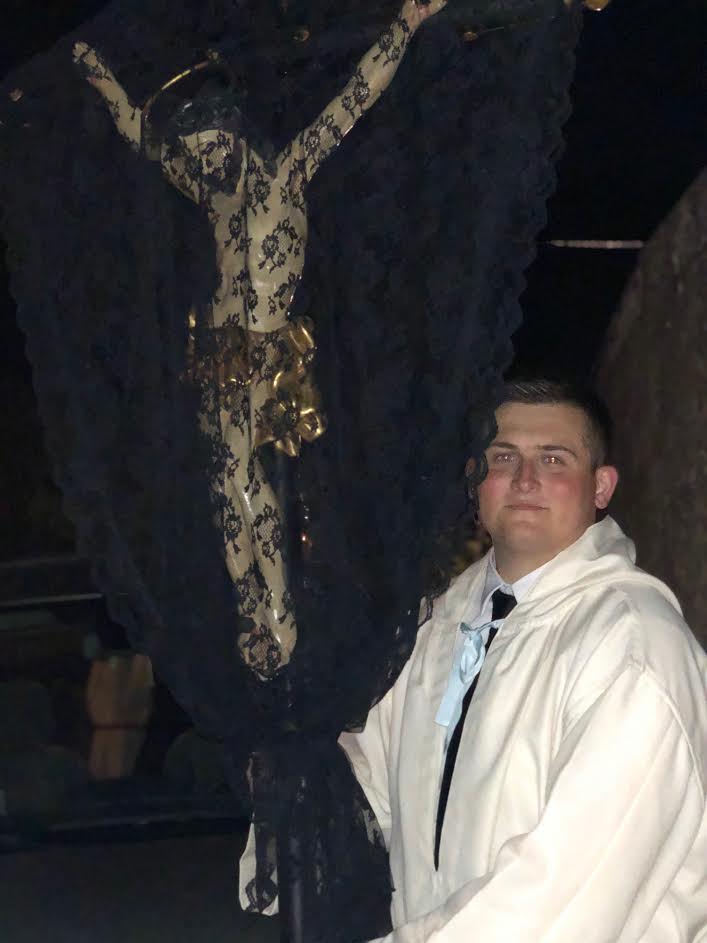
Croatian Companies Donate 60.8 Million Kuna to Coronavirus Fight
As Matea Grbac/Novac writes on the 21st of April, 2020, the fact that Croatia has a ''big heart'' has once again been proven in the ongoing coronavirus crisis. In order to support the work of medical staff, firefighters, volunteers and all those who found themselves on the front lines due to the coronavirus pandemic and earthquake in Zagreb, some of the largest Croatian companies have decided to donate huge sums.
Podravka, Zagrebacka Banka, INA, HEP, Hrvatski Telekom, Fortenova Group, and A1 Croatia are just some of the Croatian companies that have decided to help the City of Zagreb and the Croatian healthcare system with generous donations. Thus, in their struggle for the betterment and quicker recovery of Croatia, the Croatian companies singled out here donated as much as 60,863,500 kuna.
United Group - donated 3 million US dollars (about 20.9 million kuna)
The United Group operates in seven countries in the region, in the spirit of solidarity in the fight against the ongoing pandemic, it has sent medical equipment and cash worth a total of 3 million dollars. Thus, the Croatian health system has been awarded equipment worth 500,000 dollars (about 3.4 million kuna), which includes 5,600 sets of COVID-19 virus tests, seven respirators, 150,000 masks, 280 thermometers and 4,000 safety glasses.
HEP - donated 5.2 million kuna
Along with the United Group, the largest amount was donated to charity by HEP employees in collaboration with the company's management. By giving up 500 kuna from their own wages, or the collecting of a total of 100,000 in the case of members of the management board, they jointly raised a massive 5.2 million kuna. The donation was donated to help fight coronavirus and repair the damage caused by the Zagreb earthquake.
Adris Group - donated 5 million kuna
The Adris Group decided to provide financial assistance to those most in need through two rounds of donations. In addition to the initial 3 million kuna donated by the Adris Foundation to procure respirators for hospitals in Rijeka and Pula, the Adris administration decided to donate an additional 2 million kuna for the restoration of cultural monuments damaged in the earthquake that hit the Croatian capital recently.
Privredna banka Zagreb - donated 4.9 million kuna
After an initial donation of 1 million kuna to the "Dr. Fran Mihaljević" Clinic for Infectious Diseases in Zagreb, the PBZ Group decided to donate an additional 3.5 million kuna to the general hospitals in Zagreb. With this act, they included as many as seven hospitals, and to each of them they allocated 500,000 kuna. In addition, they donated 400,000 kuna to the Pula General Hospital.
Fortenova Group (former Agrokor) - donated 4 million kuna
Compared to the Croatian companies listed above, the Fortenova Group decided on a slightly different approach. Financial assistance of a total of 4 million kuna was sent to all countries in the region in which they operate. In addition, they donated half a million disposable protective masks to the Civil Protection Directorate worth nearly two million kuna in total.
Hrvatski Telekom (Croatian Telecom) - donated 4 million kuna
They donated a total of 4 million kuna to the ''Dr. Fran Mihaljevic'' Clinic for Infectious Diseases, which redistributed the proceeds according to its own needs, all with the aim of helping to fight the coronavirus pandemic.
OTP banka - donated 2.9 million kuna
In two rounds, OTP banka donated a total of 2.9 million kuna to fight COVID-19, but also to repair parts of Zagreb after the earthquake. In the first round, the bank donated 1.4 million kuna to hospitals across the country, giving general hospitals in Zadar, Sibenik, Split, Dubrovnik, Osijek, Sisak and Pula 200,000 kuna each. Then, immediately after the earthquake, OTP banka sent additional funds in the amount of 1.5 million kuna to Zagreb hospitals to repair earthquake damage.
JANAF - donated 2 million kuna
Through a number of individual donations to hospitals across the country, as well as by paying into the accounts of the Together for Zagreb and Croatia against Coronavirus actions, JANAF donated a total of 2 million kuna. Workers have also shown solidarity during these difficult times, by donating their Eastet bonuses, in the amount of more than 250,000 kuna.
INA - donated 1.5 million kuna
INA, which donated 1.5 million kuna to health institutions, associations and institutions throughout Croatia, showed its solidarity in these difficult conditions. The company donated 250,000 kuna to the ''Dr Fran Mihaljevic'' Clinic for Infectious Diseases and a further 250,000 kuna to the Health Centre of Primorje-Gorski Kotar County, while to the General Hospital Dr Ivo Pedišić in Sisak and to the Croatian Red Cross, INA donated 100,000 kuna each.
The Special Hospital for Chronic Pediatric Diseases in Gornja Bistra and the Croatian Institute for Emergency Medicine were donated 50,000 kuna each. In addition, the Rebro Pediatric Oncology Foundation was donated 200,000 kuna for equipment for pediatric hematology and oncology, and 100,000 kuna was donated to the Pediatric Department at the Pula General Hospital. Additionally, INA donated 50,000 kuna to the Kamensko Association, which sews cotton masks, while the Rudjer Boskovic Technical School in Vinkovci was donated 10,000 kuna to make visors on 3D printers. To help repair the damage caused by the Zagreb earthquake, INA also donated 250,000 kuna to the Together for Zagreb campaign, and another 100,000 kuna was donated to the Zagreb Children's Diseases Clinic.
Nexe Group - donated 1.5 million kuna
A regional manufacturer of building materials, the Nexe Group has donated 1.5 million kuna for the purchase of medical equipment to several hospitals across the region. For the most part, these are respirators and ultrasound devices. In regard to Croatia, they directed their funds to the General County Hospital in Nasice, KBC Osijek and the Croatian Red Cross, while, like INA, they also sent funds for the design of protective visors to the Rudjer Boskovic Technical School in Vinkovci.
A1 Croatia - donated 1.5 million kuna
One of the leading telecom companies in Croatia, A1 Croatia, donated equipment worth 1.5 million kuna to the Dubrava Clinical Hospital. This is the equipment needed to quickly install and connect the patients with the most serious symptos to oxygen therapy.
IKEA - donated 1.5 million kuna
The famed Swedish furniture manufacturer operating in Croatia also has donated 1.5 million kuna to the Croatian health care system. In addition, in partnership with the Croatian Red Cross and various government institutions, IKEA donated mattresses, textiles, food and other essential products to both patients and medical professionals.
Zagrebacka banka - donated 1.3 million kuna
Zagrebacka banka donated 1.3 million kuna to Croatian hospitals to help cover medical expenses, purchase medical equipment and repair earthquake damage.
Erste Bank - donated 1.3 million kuna
The ''Dr. Fran Mihaljevic'' Clinic for Infectious Diseases was sent 1 million kuna by Erste Bank to assist with the procurement of the necessary medical equipment. Erste Card Club also joined in with the donation to the health care system, which paid 300,000 kuna into the account of the Zagreb Children's Disease Clinic to help repair the material damage caused by the earthquake.
Kaufland and Lidl - donated one million kuna
Unlike the Croatian companies listed so far, the Kaufland and Lidl retail chains decided to join forces and donated a total of 1 million kuna to Croatian hospitals. The financial aid of 250,000 kuna went to KB Dubrava and the ''Dr Fran Mihaljevic'' Clinic for Infectious Diseases, while 100,000 kuna was paid to KBC Split, KBC Osijek, KBC Rijeka, OB Varazdin and OB Pula.
Podravka - donated 900,000 kuna
In order to help those who currently need the most help, the group's management and vice-presidents waived part of their income and donated it for humanitarian purposes. The campaign raised 900,000 kuna and directed those funds to hospitals to procure much-needed respirators and other essential medical equipment.
RBA - donated 525,000 kuna
Raiffeisen Bank donated 525,000 kuna to the PALČIĆI Parents Club for the purchase of medical devices necessary for the development and life of premature infants.
Franck - donated 300,000 kuna
To help institutions that cater to those most in need, Franck provided coffee, tea and self-service appliances worth 300,000 kuna. The company, in collaboration with the Croatian Red Cross, referred its products to healthcare professionals, emergency services, and volunteers across the country.
Dukat - donated 225,000 kuna
Dukat donated 30,000 litres of milk worth 225,000 kuna to citizens most at risk of a coronavirus epidemic and to those who have suffered material damage caused by the Zagreb earthquake, and the products will be distributed to citizens over three consecutive months.
Addiko Bank - donated 200,000 kuna
Addiko Bank has sent 200,000 kuna to KBC Osijek and KB Dubrava for the purchase of essential medical devices and protective equipment through the campaign 'Croatia against Coronavirus'.
Plinacro - donated 113,500 kuna
Plinacro paid a total of 113,500 kuna to the Together for Zagreb and Croatia against Coronavirus campaigns.
Pevex (formerly Pevec) - donated 100,000 kuna
Pevex donated construction materials worth 100,000 kuna for the purpose of the urgent preventive repair of roofs on earthquake damaged buildings in Zagreb.
For more on Croatian companies, follow Made in Croatia. For all you need to know about coronavirus in relation to Croatia, follow our dedicated section.
Coronavirus: Bureaucracy-Loving Croatia Impressive in Digitisation
Paper, stamps and photocopies of obscure documents are, alongside the sea, what Croatia is well known for. It seems the coronavirus crisis has forced Croatia into the 21st century, and not a moment too soon...
As Tomislav Pili/Poslovni Dnevnik writes on the 21st of April, 2020, the current coronavirus pandemic has proven the importance of digitising a range of economic sectors, and Croatia is, rather shockingly, quite satisfactory in this area, according to an analysis by the European Investment Bank (EIB) entitled ''Who is ready for a new digital age'', which was presented on Monday.
Croatia is ranked among the 'strong countries' on the EIBIS Digitisation Index, given that the Croatian digitisation rate is above the EU average in the construction, services and infrastructure sectors.
Croatia earned 63 points according to the index and is in the company of Slovenia, Sweden, Portugal, Estonia, Belgium, Luxembourg, Slovakia and Austria. The highest value of 84 points was taken by Denmark and the lowest - 48 points - was taken by Lithuania.
In addition, the digitalisation rate in the Croatian services sector is also higher than even the US average, which generally stands better than the European Union, let alone paper-loving-stamp-needing Croatia, in terms of digitisation.
The EIB report states that 40 percent of Croatian companies in the manufacturing and construction sectors have been partially digitised, and 18 percent in manufacturing and 15 percent in construction have been fully digitised.
In the service sector, more than half of Croatian companies are partially digitised, and if fully digitalised companies are added, the share grows to more than 70 percent. In comparison, in the European Union, 40 percent of companies in the sector are partially digitised, and in the US, just under 50 percent of them are.
Among large companies, the rate of digitisation in the service sector in Croatia stands at an impressive 80 percent, while the US average is about 65 percent and the European average is about 55 percent. As expected, small businesses - defined by the EIB's report as having fewer than 50 employees - cannot afford to make major investments in the area, so 40 percent of them in the service sector are digitised, as opposed to every other one being digitised in the European Union and over in the US.
In what segments is Croatia still falling behind?
The extent to which the digitalisation of business brings positive effects is evidenced by the fact that the share of companies who have done so have increased their number of employees in the last three years, or they've at the very least remained more stable than companies that didn't start the process at all.
Namely, the average labour productivity of digitised Croatian companies has reached a value of 11.2, while in the European Union it is above 12, and in the USA it is very close to that same figure. At the same time, the median salary in a digitised Croatian company is around 15,000 euros a year, while the median salary in such a company elsewhere in the European Union is a very different 38,000 euros.
In general, European companies are less digitised than their US competitors, and they're particularly lagging behind in the construction sector. In addition, American companies are investing more and more in improving their business processes. It seems however, that both European and US companies perceive digital infrastructure similarly.
For more on business in Croatia, follow this page. For all you need to know about coronavirus in relation to Croatia, follow our dedicated section.
Animal Shelters in Croatia: the Volunteers of 'Udruga Pobjede' in Osijek
April 21, 2020 - What is the situation with animal shelters in Croatia in the corona era, and who is looking after the animals? A heartwarming tale from Osijek dating back to 2007.
While the corona crisis has had a huge impact on the human race, spare a thought also for our four-legged friends, who have also been impacted in various ways. We recently did an interview with Pet centar CEO Ljiljana Markov in which she told us about her nationwide pet shop online delivery service. We had a fantastic response to the article and several messages of thanks, including one American in Zaostrog near Makarska, whose Great Dane was a VERY happy beneficiary of her first Pet centar online delivery a couple of days after her order was placed.
Today we switch our attention from pet shops to animal shelters in Croatia, and we are delighted to welcome Sanja Grbanovic to TCN. Sanja starts with a great story about animal shelters in Croatia, in Osijek.
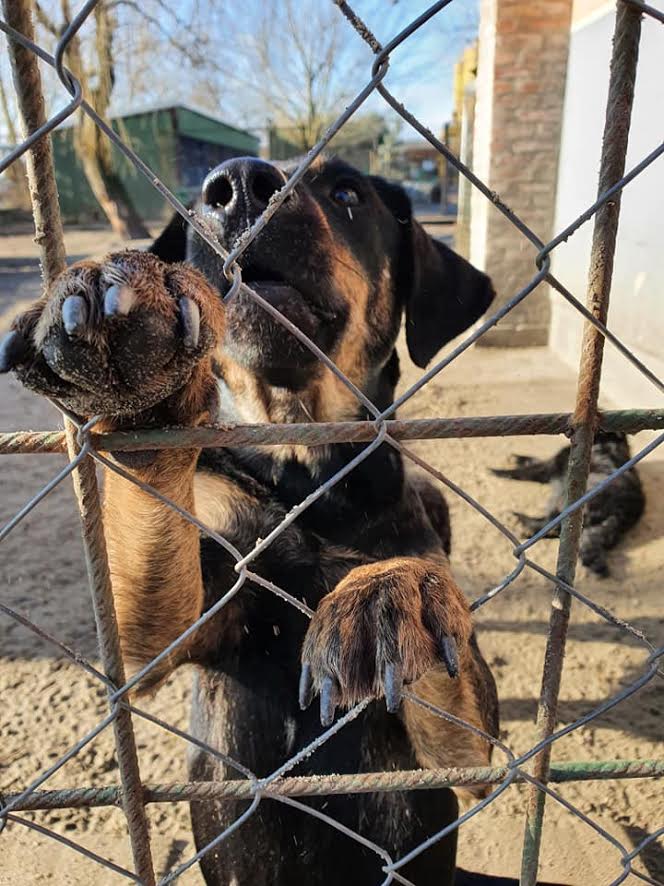
Humanity 2.0 in Osijek?
When reflecting on the nature of man, each of us has his own opinion. Is Man by nature good, or basically bad? Perhaps the two most famous opposing opinions on this matter are those of Hobbes and Rousseau. Hobbes would say we are ‘nasty’ and ‘brutish’, and we need society and rules to reign in our instincts in order to thrive; whilst Rousseau would argue that man would be gentle and pure without the corruption of greed and inequality imposed by our society.
Are we born with an innate moral compass or is it something we develop as we grow? One question, seen often nowadays in social media about life after coronavirus, is whether or not we will emerge as better people?
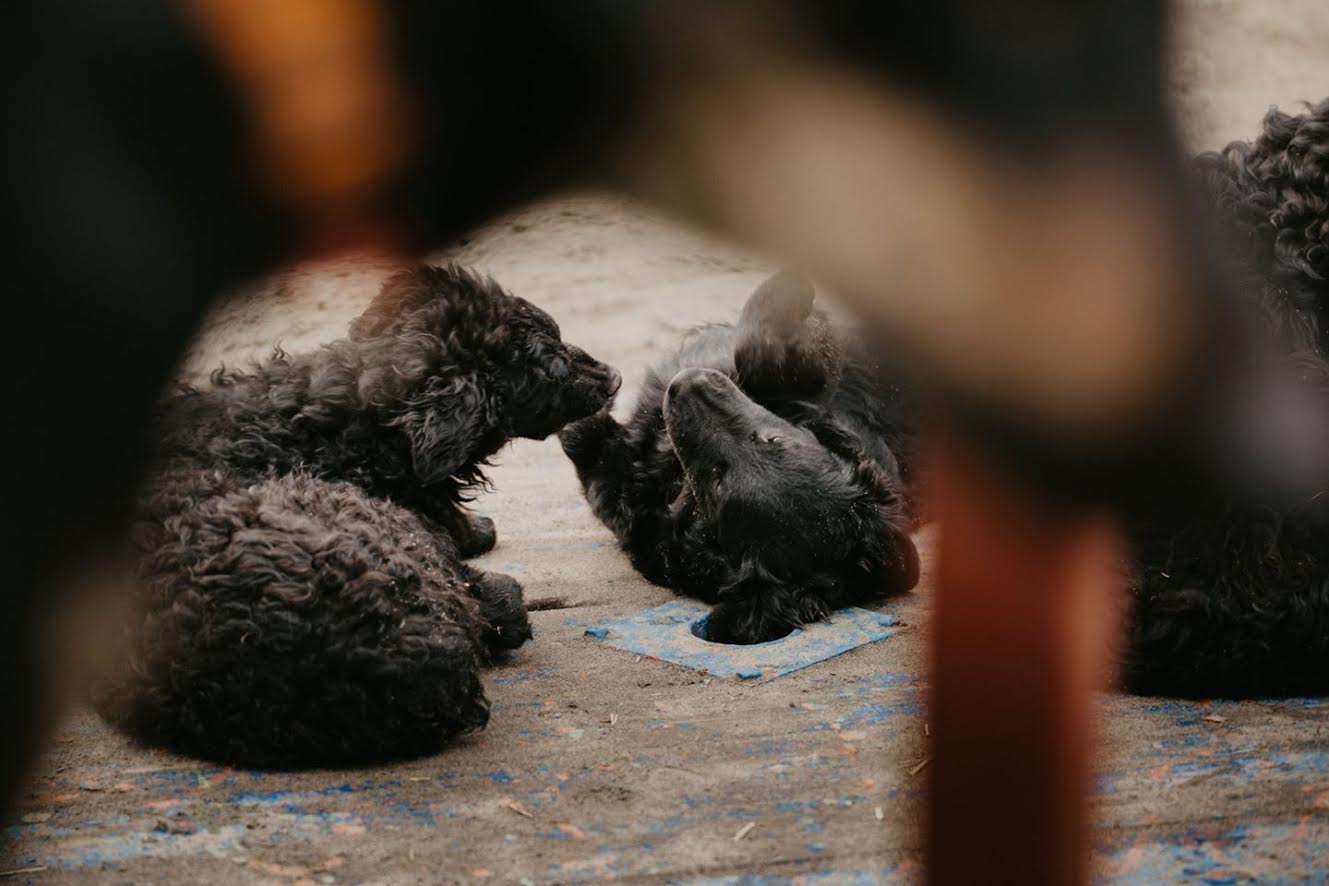
The last global crisis didn't change the world. Why should this one? Why is there a firm belief we have what it takes to turn things around now and turn into Human 2.0? And what would be a true measure of this change?
Yesterday, late in the evening, I spoke with a friend who had saved a baby hedgehog from the trash bin.
The other day I read about a man who saved a deer from drowning in a canal.
My uncle saved an injured cat by bringing it to the vet on time.
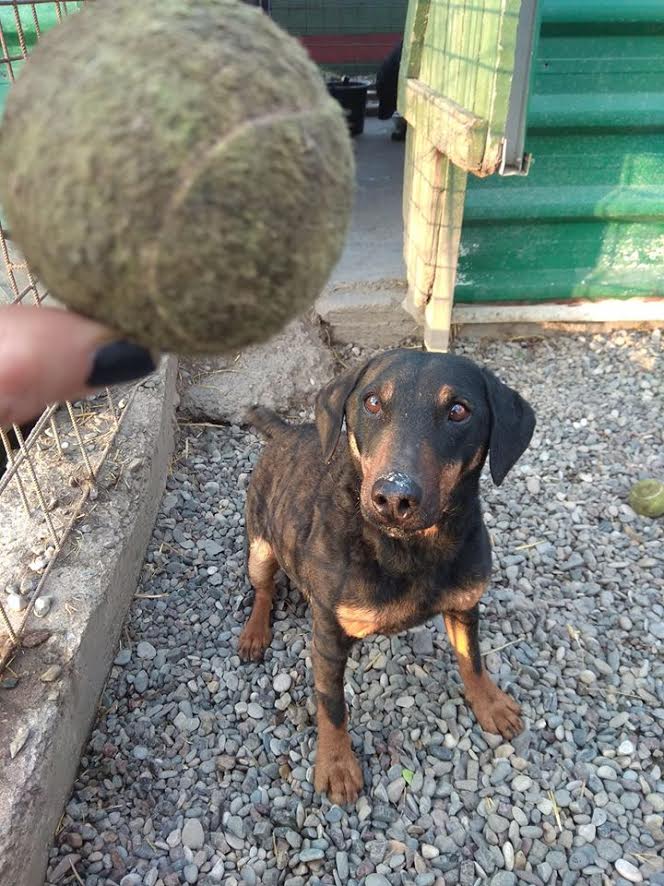
But what can one man do?
Let´s travel back a bit in time and take this story back to 2007. A few ordinary, but then again not so ordinary people - and later heroes of this tale - visited a local dog shelter in Osijek. In a town full of dog lovers, there were no volunteers at the shelter. Sick, injured, without veterinary care, unvaccinated, not spayed/neutered, hungry, with puppies crawling out of underground holes, and death a daily reality. These not so ordinary people decided to act.
Their first aim was to draw attention to the awful conditions the dogs were living in at the shelter, so they started an initiative to help the abandoned dogs. In 2009, the association for animal protection and rights “Udruga Pobjede” was born, prior to which it acted as a civil initiative. You can follow them on Facebook here.
A lot has changed since then.
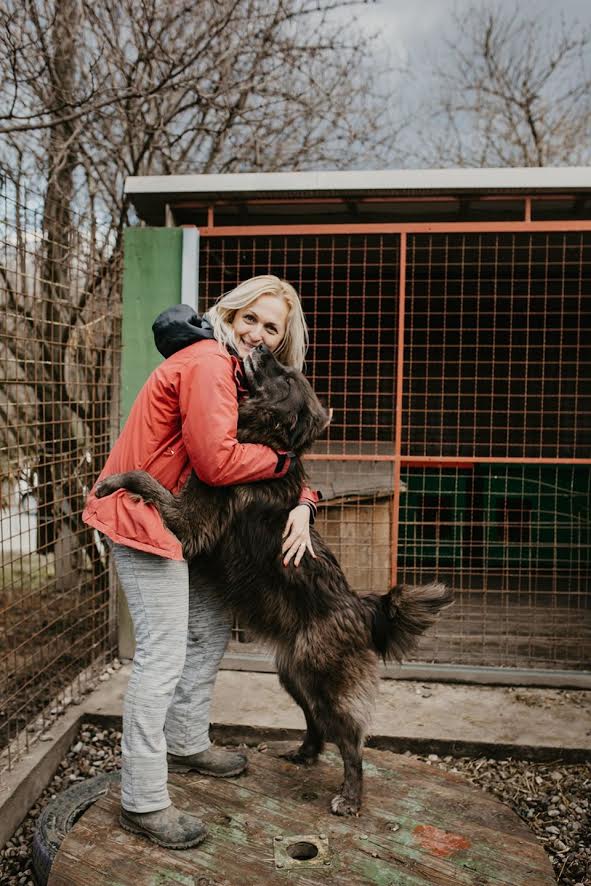
In 2010, “Udruga Pobjede” officially took over the shelter for abandoned animals in a suburban village called Nemetin, and in December 2011 the shelter was registered by the Ministry of Agriculture as the 23rd shelter for abandoned animals in Croatia and one of the first no-kill shelters in the whole country.
The footage and photos in the first part of the video below are from 2007, when they first came to the shelter - while the second part of the video was recorded in 2018.
{youtube}Vpy0HkExva4{/youtube}
Members of the association “Udruga Pobjede” initiated and organized various fundraising events in order to improve the shelter’s infrastructure and to provide food and medical aid for the dogs. Today the shelter is funded by the association, business and private sector donations, different fundraising events and through collaboration with the City Council. Every dog in the shelter has veterinary care (vaccinated against rabies and infectious diseases and treated against internal parasites), is microchipped and neutered 21 days from entry (except puppies, they are neutered at 6 months old if female, 9 months old if male). Since taking over the running of the shelter, Osijek’s shelter for abandoned animals has come a long way, from a shelter with no volunteers to a shelter with the highest number of volunteer hours in Croatia, which makes these not so ordinary people very proud.
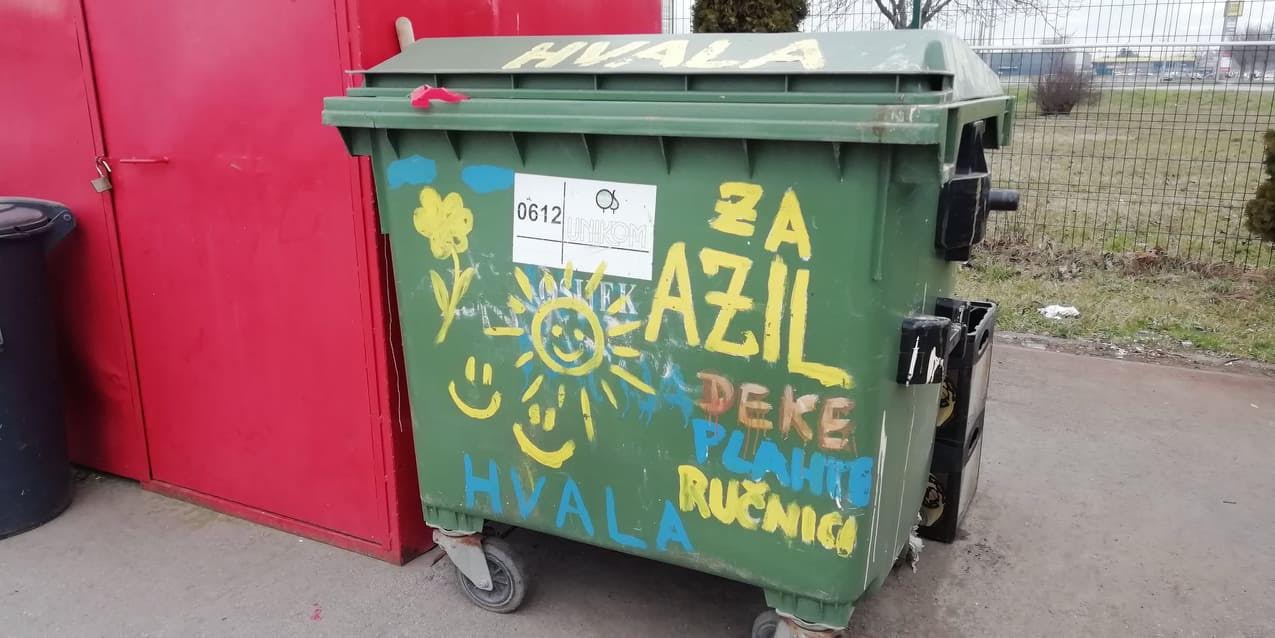
Udruga Pobjede constantly takes care of about 200 dogs and unfortunately, there are always more in need. In 2015 “Udruga Pobjede” signed the first contract with the City of Osijek, and since then they have attained a partner relationship for taking care of and re-homing abandoned dogs, but also in the prevention of abandoning, neglecting and abusing of animals.
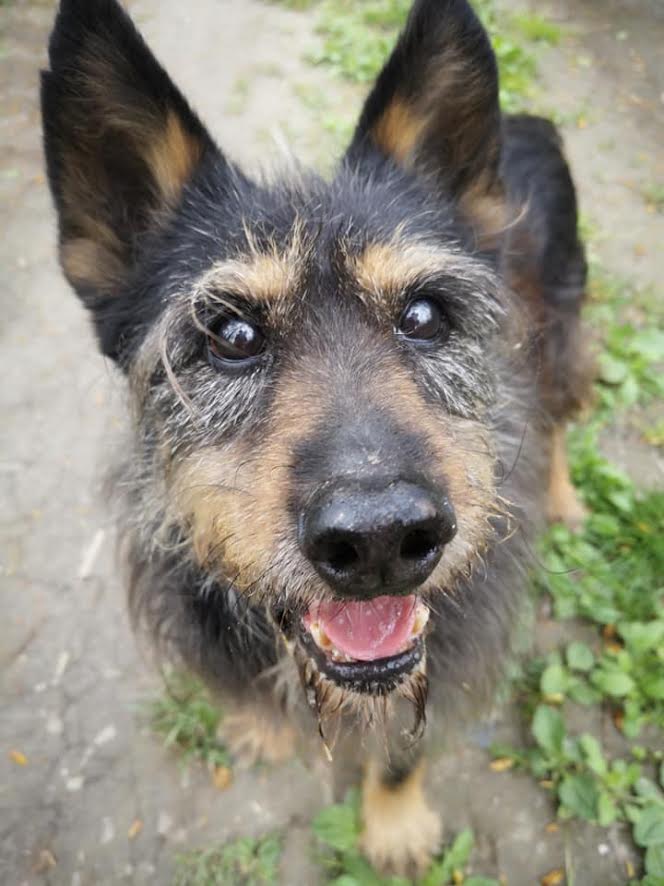
The successful work of the association can also be seen through the number of 335 adoptions in 2018, 340 adoptions in 2019 and over 1000 dogs rescued in two years. Thanks to the Association, so many dog lives have been saved, so many dogs have found their “forever homes”, so many injured and hungry have been fed and taken care of. Some, as our dear Lady Margita, above, is still in the shelter, for 13 long years. But she has someone to take care of her until maybe someone falls in love with these gorgeous eyes.
One of the biggest achievements of Udruga Pobjede are without doubt the number of volunteer hours during the last two years.
In 2018, 61 active volunteers contributed 8958 hours and in 2019, 131 active volunteers contributed 12573 hours.
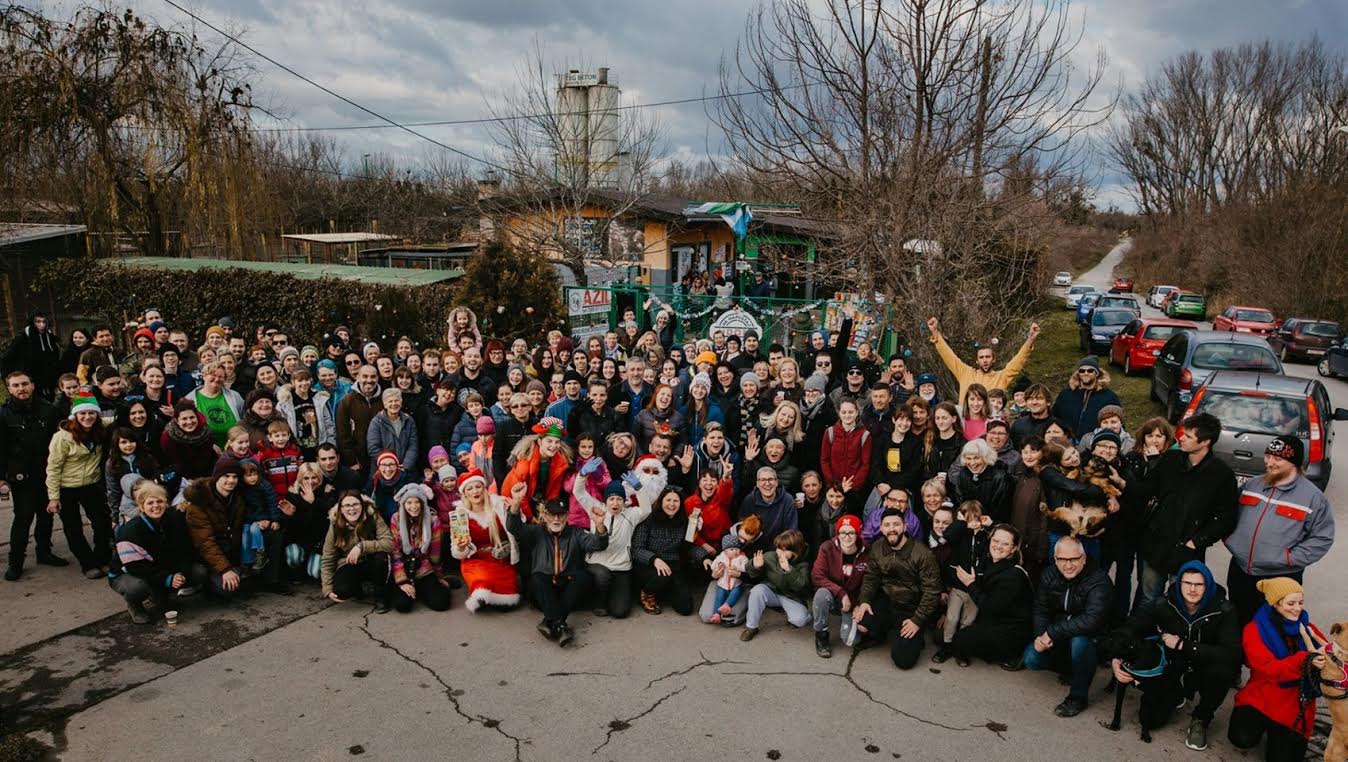
This confirms that their engagement is being positively evaluated by the community, but it also shows how much they have achieved to promote positive values and to create a positive social capital and a community, which recognizes the importance of voluntary engagement as a fundament for strengthening social capital.
They carry on educational programmes and collaborate with more than 40 schools and kindergartens in Osijek and the wider region, as well as tertiary institutions. They hold lectures and workshops and organize educational visits to the shelter.

Through all their activities in the civil, public and business sectors, as well as local government – they have made great progress in rescuing abandoned animals and in raising awareness of the problem in their community. They work has become more and more visible and recognised in the community. Their fellow citizens have joined and helped develop the solidarity network made of all social sectors.
All these activities helped them to help those in need - by initiating positive changes with the “bottom up” approach. One man can change the world, indeed.
Unfortunately, they are currently also affected by the COVID-19 pandemic situation. They have over 200 dogs in care and currently are facing major problems in implementing and funding their activities.
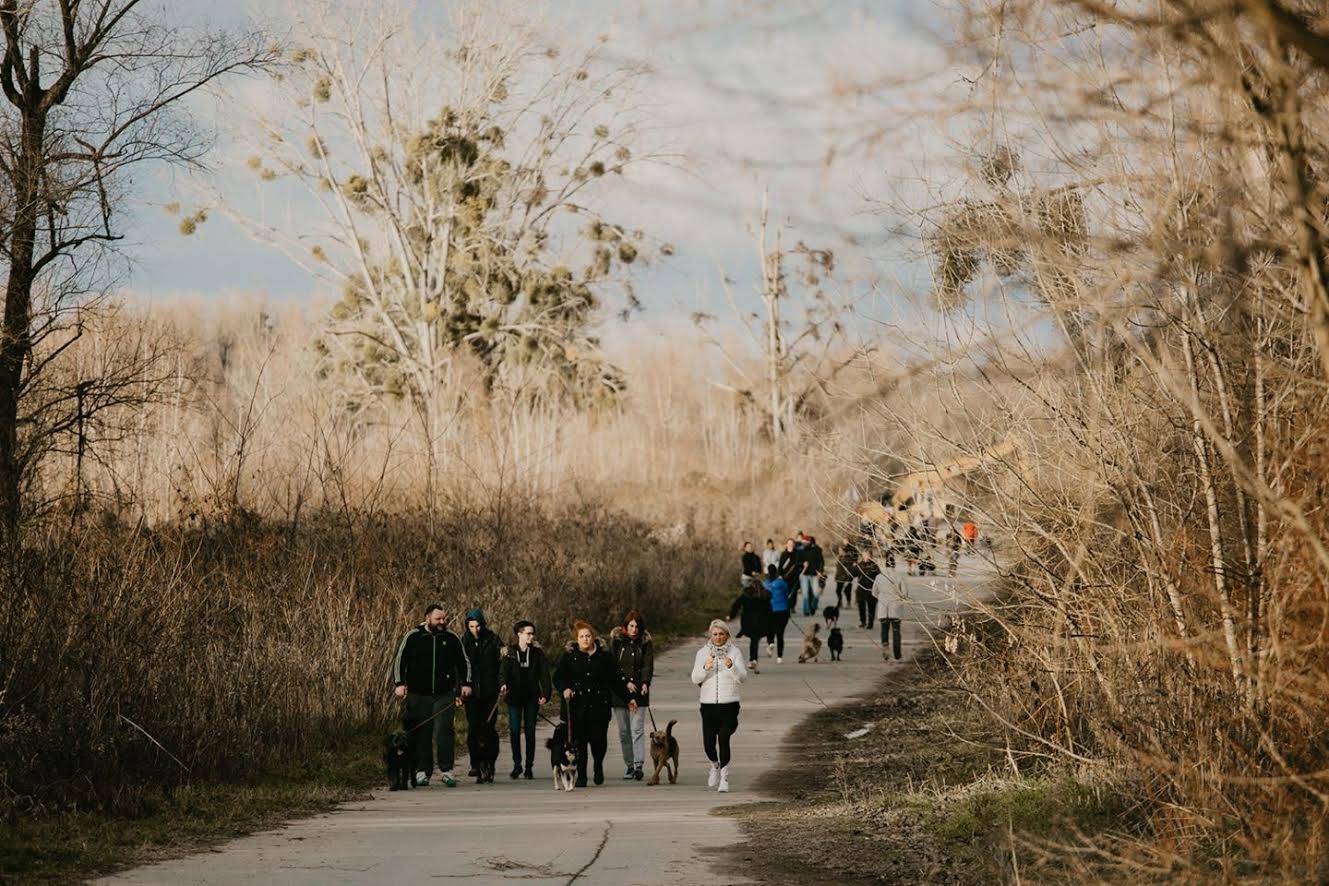
Government institutions, cities, municipalities, the business sector, banks and foreign donors have focused their activities almost exclusively on direct support to entrepreneurs in the circumstances of the global pandemic, and because of this situation, they are unable to regularly cover veterinary costs and provide for all the regular needs of the dogs they have in care.
Since rigorous COVID-19 anti-virus measures have come into force in Croatia, many of their donors have lost their jobs, businesses have ceased operations, the shelter is closed to visitors and volunteers, the public sector has directed funds to aid recovery of the economy, people fear for their future and the possibility of recession, which has led to a significant reduction of resources at their disposal.
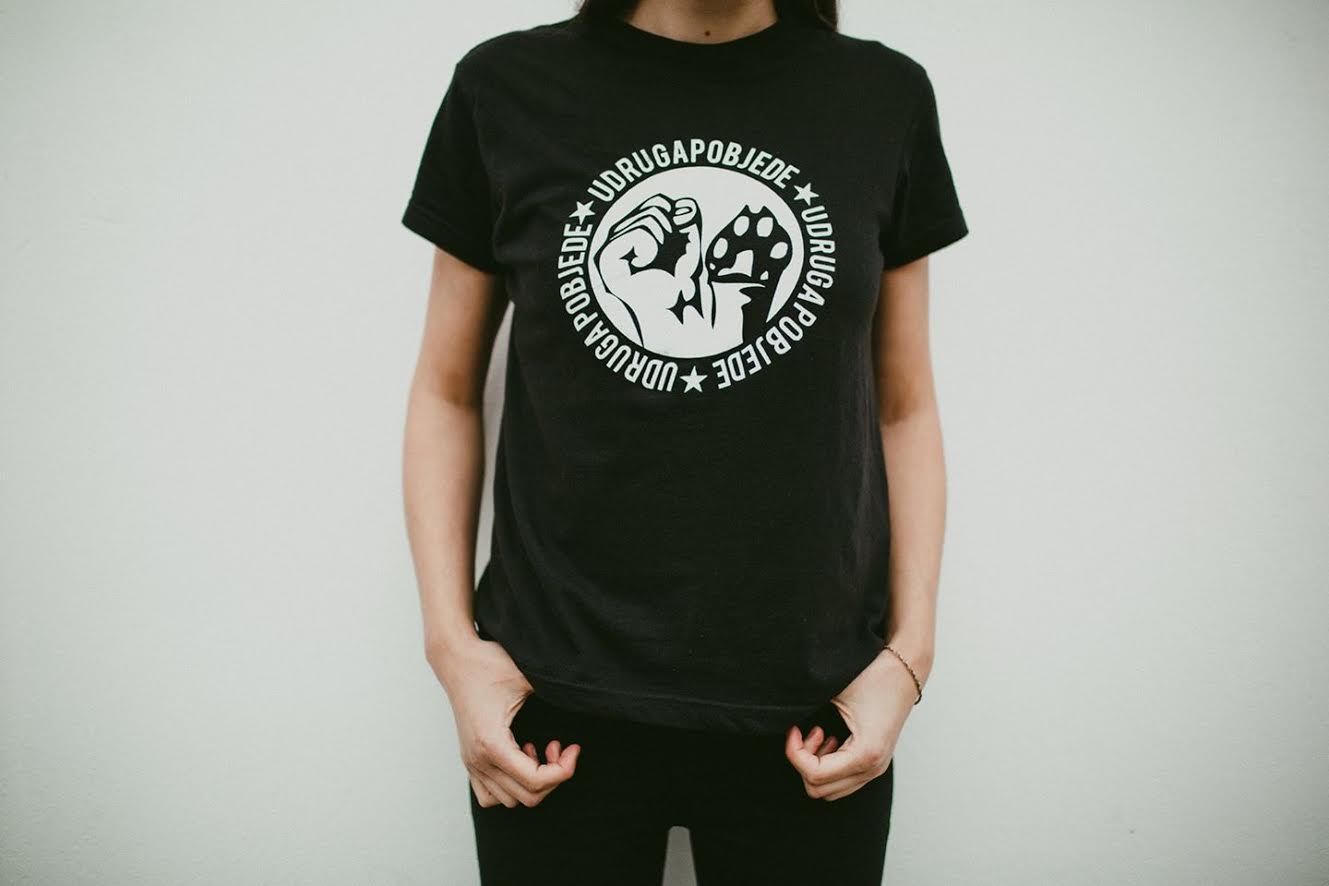
With the arrival of warmer weather, the Osijek shelter usually has increased expenses due to the fact that each month during that period (March-September) they provide ampoules against fleas and ticks for all dogs. A large number of dogs that they receive for care come with piroplasmosis (a tick-borne disease), and they have increased veterinary costs for treating dogs infected with this virus. If they do not treat our dogs, they fear that they may be in danger as well, because there are ticks in the forest where they take the dogs for a run (in order to get the energy out of dogs and maintain stability in the packs now that there are no volunteers).
In previous periods, they would step up self-financing activities during the spring months and have previously managed to secure funds through sponsorship/donation programmes, bimonthly online auctions, through the Posh Store – Association’s second-hand fair, organised fundraising events, visits to the shelter by volunteers, dog walkers and adopters, private sector donations, public sector programmes and the like, but because of COVID-19 at this point, they cannot do anything to secure funding through our usual channels and need our help to overcome this difficult period in order to survive and provide adequate care for the dogs.
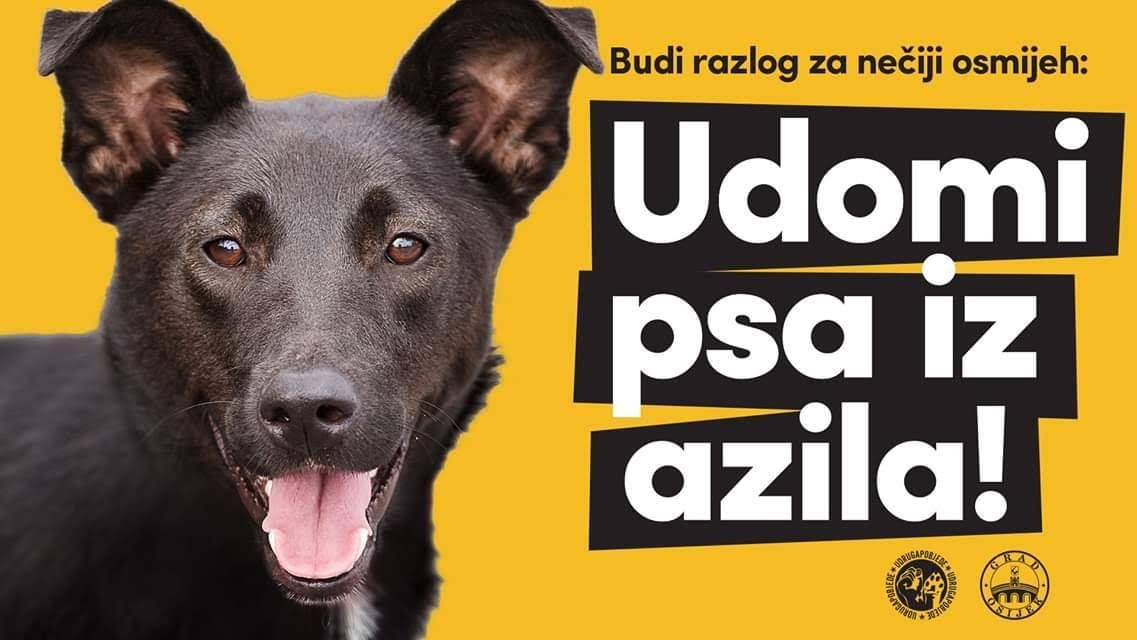
If you are able to financially support the work of the shelter one time or over several months and help them to get through this difficult situation as painlessly as possible, you can do so by making a donation to:
Udruga Pobjede
IBAN HR8823400091110405854
Data for payments from abroad:
Privredna banka Zagreb d.d. 10000 Zagreb, Račkoga 6,
Croatia
swift code: PBZGHR2X
PayPal: This email address is being protected from spambots. You need JavaScript enabled to view it.
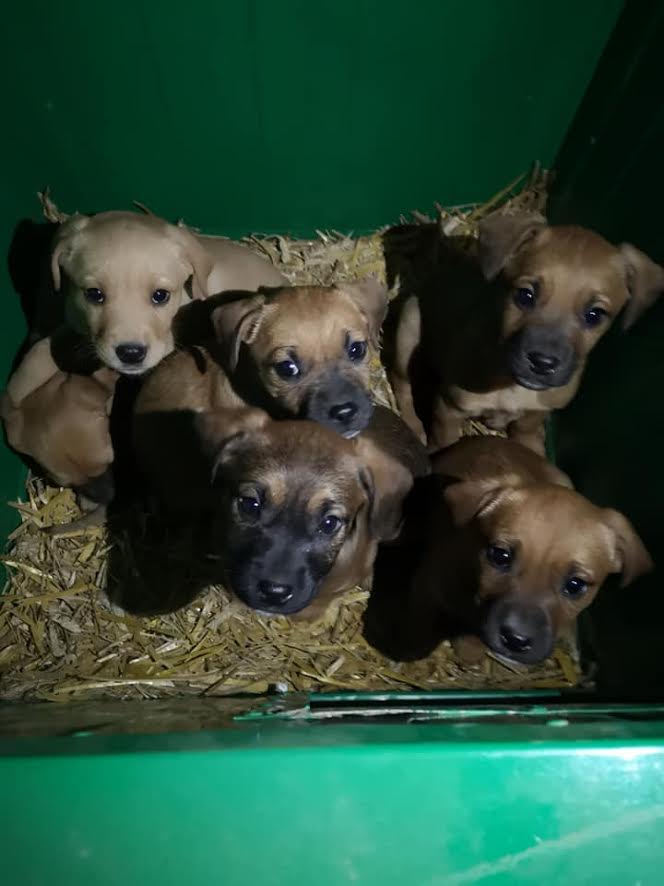
If not financially, you could help with suggestions, ideas for help or suggestion whom they may contact for help. You could foster a dog, become a godparent, provide necessities – or even adopt.
During the COVID-19 Crisis, on an individual level, one might ask what are the things you can do to protect your health and enrich your life, or we can ask ourselves what we can do for others to protect their right to life and quality of life.
In his book, The Psychology of Genocide, the psychologist Steven Baum cites an old Cherokee tale that tells of a grandfather teaching life principles to his grandson:

“A fight is going on inside me,” he says to the boy. “It is a terrible fight and it is between two wolves. One is evil – he is anger, envy, sorrow, regret, greed, arrogance, self-pity, guilt, resentment, inferiority, lies, false pride, superiority, and ego.” He continued, “The other is good – he is joy, peace, love, hope, serenity, humility, kindness, benevolence, empathy, generosity, truth, compassion and faith.
"The same fight is going on inside you – and inside every other person, too.”
The grandson thought about it for a minute and then asked his grandfather, “Which wolf will win?”
The old Cherokee simply replied, “The one you feed." So, will we emerge as a better society after the crisis? Are you #teamHobbes, or #teamRousseau?
You, as a vital part of society, decide which wolf you feed. If you can not find the inspiration in yourself, maybe the words of Maša Riznić, Head of the Shelter for abandoned animals of the Pobjede Association help: It is not easy. There are hard days and battles lost. On the especially hard days, crying in your pillow is the last ounce of strength left. But you always move on. Because on the other days… Another little furry soul needs your help – or a perfect adoptive family awaits at the shelter gate to provide a loving home for one of our dogs. This is what heals our wounds and fills us with new hope. We can not do this alone – each of us holds a very important part of the puzzle.
More important – this has nothing to do whether or not this is before or after the crisis. Whichever idea ignites your spark – you too, can tell a story as wonderful as the story of the people who saved thousands of animals in Osijek.
Richest Town in Croatia Keeps Travel Restrictions, For Now
April 21, 2020 — A tourism hub on the island of Pag opted out of loosened travel restrictions to prevent a surge in new COVID-19 infections during the coming Mayday holiday, which it fears could have repercussions on its profitable summer season.
The decision comes as the rest of Croatia tosses aside an ePass system which created an administrative — if not literal — barrier between municipalities and counties during the first month of Croatia’s lockdown.
A drop in new infections gives local directorates a chance to ease back on restrictions. Novalja said, “No thanks” and received an exemption allowing it to maintain stricter policies.
The head of Novalja’s Civil Protection Directorate Marijan Suljić reportedly told HINA the town will keep the ePass regime, preventing weekend visitors from returning to second residences and vacation homes.
“It may be a case of thousands of people who would come to their apartments when no catering facilities were working,” Suljić said. “Everyone would go out to the waterfront and that's dangerous. With this unpopular decision, we are protecting ourselves and them.”
Novalja made waves with an ad campaign asking tourists to stay at home, a jarring message for a town whose economy relies almost exclusively on a booming tourism season.
The comparatively affluent municipality helped local businesses weather the lockdown’s economic plunge, covering state-mandated social safety net contributions for every worker in the hospitality industry.
Suljić acknowledged the continued lockdown would anger the owners of summer homes and apartments. He said Novalja will welcome back weekenders, eventually, but not at the cost of progress made containing the coronavirus.
To date, the small town had only two cases of COVID-19, a married couple reportedly recovered ready to be declared healthy on Sunday, 28 days after testing positive.
The municipality will probably open to outsiders when hospitality and food service companies resume business.
“We just have to endure a little more because it would be pointless to give up and ruin everything now,” Suljić added.
This Year's Bleiburg Commemoration Cancelled
ZAGREB, April 21, 2020 - This year's memorial ceremony for Croatian soldiers and civilians killed at Bleiburg, Austria in 1945 has been cancelled due to the coronavirus pandemic, organisers announced in a statement on Tuesday.
The decision was made at a conference call by the Bleiburg Guard of Honour on Monday after the Austrian government restricted the right to public assembly and the governments of Croatia, Slovenia and Bosnia and Herzegovina restricted travel abroad or transit through their respective countries.
The statement said that an alternative programme to commemorate the 75th anniversary of the Bleiburg tragedy would be announced in due course.
The commemoration is held annually in Loibach Field near Bleiburg, Austria for soldiers of the Nazi-allied Croatian Ustasha regime and civilians killed there at the end of World War II.
More Bleiburg news can be found in the Politics section.
Finance Ministry Issues 2.55 Billion Kuna Worth of Treasury Bonds
ZAGREB, April 21, 2020 - The Croatian Ministry of Finance sold HRK 2.55 billion worth of treasury bonds at an auction on Tuesday, considerably more than planned.
In advance of the maturity of HRK 1.16 billion worth of treasury bonds, the Ministry offered HRK 1.5 billion for subscription with a maturity of one year. Financial institutions submitted bids totalling HRK 2.55 billion and the Ministry accepted them all.
The Ministry issued HRK 2.55 billion in kuna-denominated treasury bonds with a maturity of one year and at an interest rate of 0.06%, the same as at the previous auction. The low interest rate is not surprising given the liquidity surplus in the financial system of some HRK 34 billion.
With the maturity of HRK 1.16 billion worth of treasury bonds, the balance of kuna-denominated bonds subscribed increased by HRK 1.39 billion to HRK 17.9 billion.
The next auction is scheduled for April 28 via the Bloomberg Auction System.
More budget news can be found in the Business section.

